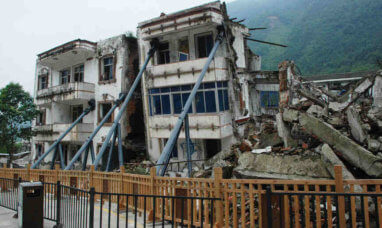If you are a renter, it is important to understand the basics of renters insurance. What does renters insurance cover? This is a question that many people have. In this blog post, we will discuss what renters insurance covers and how it can help protect you in the event of an emergency.
In simple terms, renters insurance is a type of insurance that helps protect you in the event of an emergency. It can cover things like your personal belongings, liability, and even medical expenses.
If you live in an apartment or renter home, it is important to have renters insurance. You never know when an emergency will happen, and it is always better to be safe than sorry. There are many different types of renters insurance policies, so it is important to understand them and find one that fits your needs.
Does homeowners insurance cover volcanoes?
Homeowners insurance typically covers damage caused by natural disasters like hurricanes, tornadoes, and earthquakes. However, coverage for volcanic eruptions is less common.
While some insurers will offer limited coverage for volcanic activity, it is typically only available as an add-on to a standard policy. As a result, most homeowners are not protected against financial losses caused by a volcanic eruption.
It can be a significant problem in areas where volcanoes are common, as the cost of repairing or rebuilding a home can be substantial. For this reason, it is important to carefully review your homeowners insurance policy to ensure that you have the coverage you need.
If you live in an area at risk for volcanoes, you may want to consider purchasing additional coverage to protect your home and belongings.
Volcano insurance cost
In today’s world, natural disasters are becoming more and more common. Homes and businesses located in disaster-prone areas are at risk of being destroyed by floods, hurricanes, earthquakes, and other catastrophic events.
For this reason, many insurance companies now offer policies that cover damage caused by natural disasters. However, these policies can be very expensive, and not all companies offer coverage for every type of disaster.
Volcano insurance is one type of coverage that is often excluded from standard policies. As the name suggests, volcano insurance covers damage caused by eruptions of volcanoes. This can include damage to homes, businesses, and infrastructure located within the vicinity of the eruption.
Volcanoes are notoriously unpredictable, and the costs of repairing or rebuilding after an eruption can be astronomical. It is typically only offered by specialized insurers. The cost of a policy depends on a number of factors, including the location of the property and the likelihood of an eruption.
Most importantly, as with any insurance policy, the cost of volcano insurance is always worth it in the event of an eruption.
Does renters insurance cover burst pipes?
Generally speaking, most renters insurance policies cover damage caused by sudden and accidental water damage, such as flooding or leaks.
However, determining whether a burst pipe is identifiable as accidental can be difficult. In some cases, it may be clear that the bursting was caused by something like faulty plumbing or extreme weather conditions.
On the other hand, it may be more challenging to pinpoint what exactly led to the burst and whether it could have been prevented. Overall, the best way to find out if your renters insurance policy covers burst pipes is to contact your provider directly and discuss your specific situation with them.
With the guidance of your insurance provider, you can make an informed decision about how best to proceed in the event of a broken pipe. It will also help if you understand how to calculate your home insurance.
Renters insurance and apartment flooding
Flooding is one of the most frequent natural disasters and causes a devastating occurrence for renters. Our homes may not be the ones that are most at risk of flooding – after all, many apartment buildings are located in floodplains or coastal regions – but when the water starts to rise, it can quickly inundate our possessions and cause untold damage to both structures and personal items.
The good news is that renters can protect themselves from these kinds of events by investing in renters insurance. This kind of insurance will provide financial compensation in the event of a flood, helping us to recover more quickly and avoid financial ruin.
In addition, many policies also offer coverage for temporary housing or emergency supplies, which can be an invaluable asset during a time of crisis. So if you’re looking for peace of mind when it comes to apartment flooding, consider purchasing a robust renters insurance plan today. You’ll be glad you did.
Does home insurance cover basement flooding?
Home insurance policies typically do not cover flooding, but there are some exceptions. For example, if your basement floods due to a busted pipe, broken appliance, or localized overflow, your policy may cover the damage.
However, if the flood is caused by heavy rains or an overflowing river, it is likely that your policy will not provide any coverage. It is because most home insurance policies exclude flood damage from their coverage.
Thus, if you live in an area that is prone to flooding, you may want to purchase a separate flood insurance policy. While this will add to your overall costs, it could save you thousands of dollars in the long run.
Notable aspects covered by renter insurance
In addition to flooding and volcano insurance, renter insurance also covers damage caused by severe weather, fire, theft, and vandalism.
It also covers your personal belongings in the event that they are damaged or stolen while you are away from home. Renter insurance is an important way to protect yourself and your belongings from the financial impact of unexpected events.
For instance, if your home is burglarized and all of your possessions are stolen, your renter insurance policy will reimburse you for the value of those items.
If you are ever in a situation where you need to make a claim on your policy, it is important to contact your insurance provider as soon as possible. They will be able to guide you through the process and help you get the compensation you need to recover from the incident.
When it comes to renter insurance, there is no one-size-fits-all solution. The best way to find the right policy for you is to shop around and compare quotes from different providers. Make sure to read the fine print and understand what is covered by each policy before making a decision.
By paying a small monthly premium, you can have peace of mind knowing that you are covered in the event of an emergency. So if you’re ever faced with a natural disaster or a break-in, you can rest assured that your renter insurance will help you get back on your feet.
Which area is not protected by most homeowners insurance frameworks?
The majority of homeowners insurance policies protect against damage caused by fire, theft, and natural disasters such as floods and earthquakes.
However, there is one area that is less frequently covered by homeowners insurance: liability risks. Homeowners are often held responsible for any bodily or property damage caused by their negligence, and thus it is up to them to take precautionary measures to minimize the risk of liability claims.
As such, most insurers will only include liability coverage as an add-on option for an additional fee, since it tends to be more expensive and generates more claims than other types of coverage.
So if you want complete peace of mind when it comes to protecting your home, you may want to consider investing in a policy that offers full liability coverage from the start. After all, your homeowners insurance should help you sleep at night knowing that your home is completely protected from a wide range of risks.
Final Thoughts
Renters insurance is a vital tool for protecting your home and belongings, but it’s important to understand what it does and doesn’t cover. In this blog post, we’ve gone over some of the basics of renters insurance, including what it covers and how to get the most comprehensive protection for your needs. We hope this has been helpful in getting you started on your journey to finding the perfect renters insurance policy for you.
Featured Image: Twenty20








